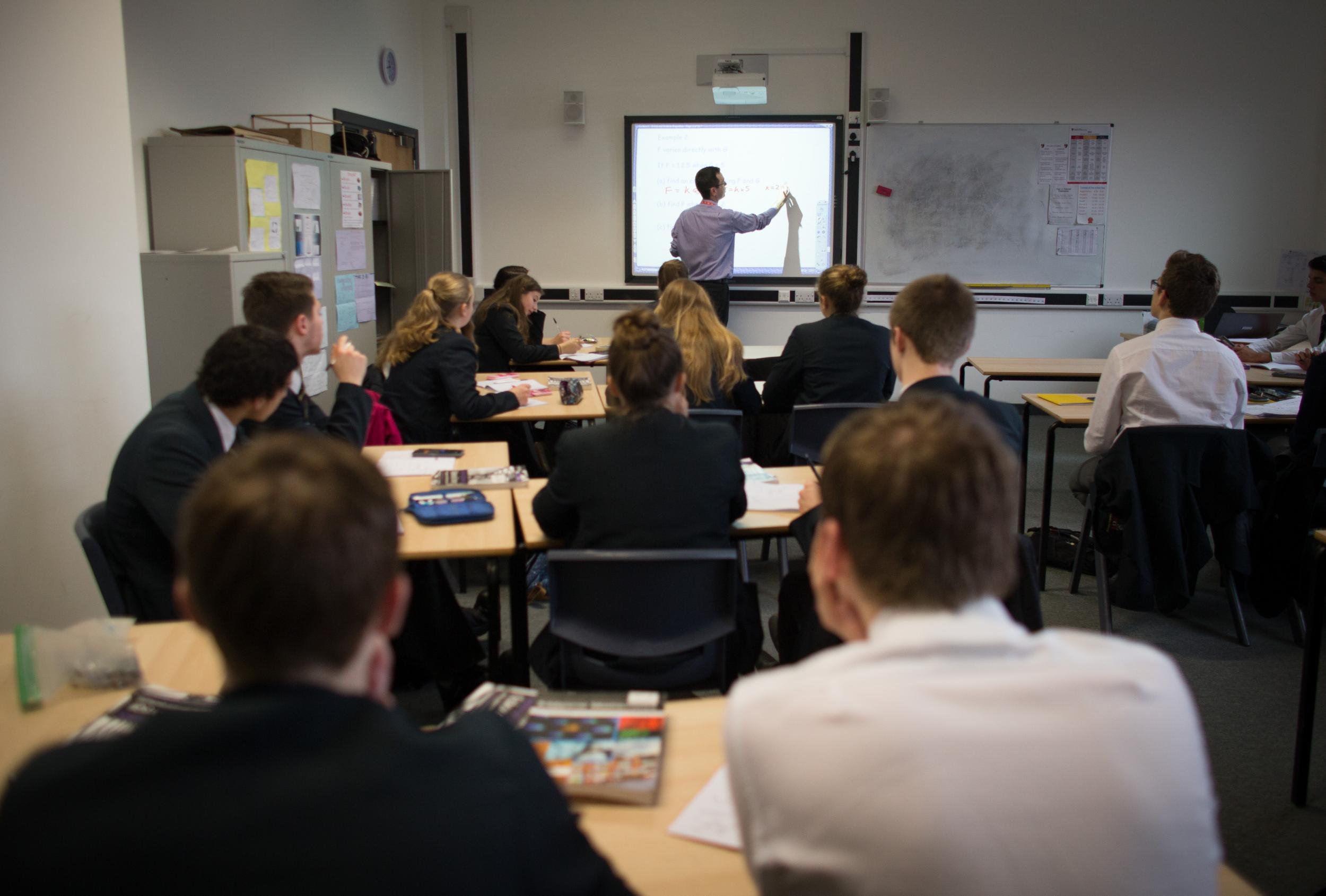Government's Prevent strategy means pupils 'too scared to talk in case they're branded radical'
Teachers say the Government's counter-terrorist 'Prevent' strategy is doing pupils more harm than good

Your support helps us to tell the story
From reproductive rights to climate change to Big Tech, The Independent is on the ground when the story is developing. Whether it's investigating the financials of Elon Musk's pro-Trump PAC or producing our latest documentary, 'The A Word', which shines a light on the American women fighting for reproductive rights, we know how important it is to parse out the facts from the messaging.
At such a critical moment in US history, we need reporters on the ground. Your donation allows us to keep sending journalists to speak to both sides of the story.
The Independent is trusted by Americans across the entire political spectrum. And unlike many other quality news outlets, we choose not to lock Americans out of our reporting and analysis with paywalls. We believe quality journalism should be available to everyone, paid for by those who can afford it.
Your support makes all the difference.Fears of being branded an extremist are preventing pupils from engaging in debate in the classroom, teachers have warned.
Delegates at the National Union of Teachers' annual conference voted to urge the Government to withdraw its "Prevent" strategy - which puts a duty on teachers to report any signs that pupils may have been "radicalised".
"We are worried that children are increasingly unwilling to talk about their view of the world because they are frightened and their parents are frightened that their name will be put on a list," said Kevin Courtney, deputy general secretary of the NUT. "The point is, though, that the best contribution teachers can make in tackling these issues is to encourage discussion in the classroom."
He told of one 17-year-old student who was interrogated by te police after being reported for carrying free Palestine leaflets. "Supporting a free Palestine in not an extreme position," he added. "It is in no way Jihadist."
Other cases included a four-year-old child who was reported when he wrote "cookabomber" when he meant "cucumber" and a 10-year-old who wrote about living in a "terrorist" house when he meant "terraced" and was questioned by police.
In another incident a teacher at an East London girls' school with a large Muslim intake was surprised - in the week of the Charlie Hebden shootings in Paris - that no pupil raised it it in their weekly current affairs lesson. "The girls had been told by their parents not to discuss these things," said Mr Courtney.
In all, about 4,000 young people had been reported in the last 18 months and - in 90 per cent of cases - no further action had been taken, "Nicky Morgan (the Education Secretary) says she wants free discussion but the strategy is not providing it," he added. "We have to see how we can remove these pressures "on teachers) to over report."
Alex Kenny, for the union's executive moving the motion, said: "The NUT believes 100 per cent that teachers in schools have a duty and obligation to look out for those who might be vulnerable."
However, he added that the Government's "prevent" strategy was "flawed" because of over-reaction by some teachers. "Teachers are finding it more difficult to seize opportunities to discuss important issues that may help students make sense of the world," he said.
He cited David Andersom, the independent reviewer of terrorism legislation for the Government, who had said: "If the wrong decisions are taken, the new law (the prevent strategy) risks provoking a backlash in affected communities, alienating those whose integration into British society is already fragile and playing into the hands of those wo, by peddling a grievance agenda, seek to drive people further towards extremism and terrorism."
Gary Kaye, from North Yorkshire, said the strategy should be withdrawn from schools "to stop education professionals being the secret service of the public sector".
A spokesman for the Department for Education said: "We make no apology for protecting children and young people from the risks of extremism and radicalisation." The strategy, the Government added, provided teachers with the "resilience" to challenge terrorist arguments.
The Counter-Terrorism and Security Act was introduced last year and placed a legal duty on schools to "prevent people from being drawn into terrorism".
It followed fears that young people were being radicalised in schools and colleges after some had disappeared to Syria or joined extremist groups.
The Government says that the prevent strategy does not inhibit open debate and discussion but provides teachers with the "resilience" to challenge extremist arguments.
Join our commenting forum
Join thought-provoking conversations, follow other Independent readers and see their replies
Comments